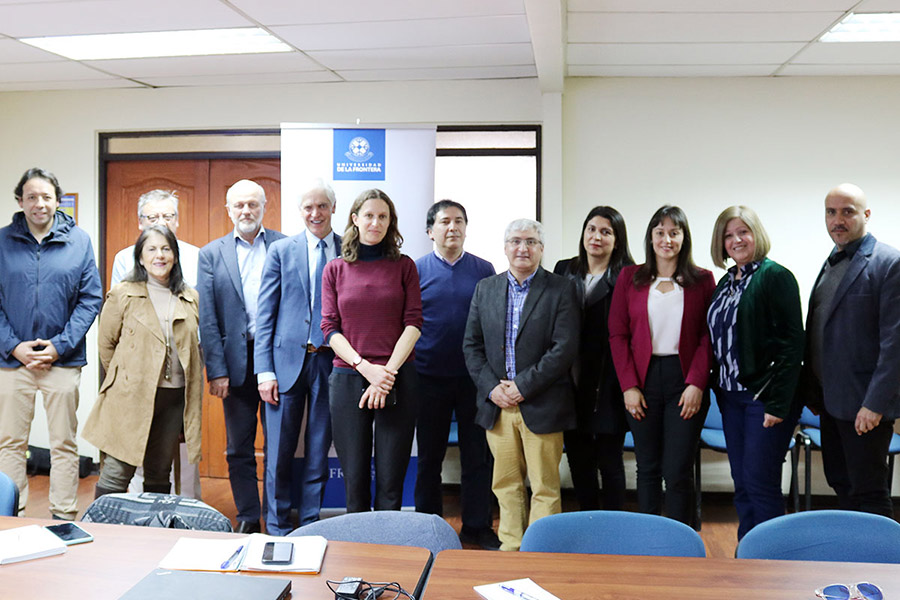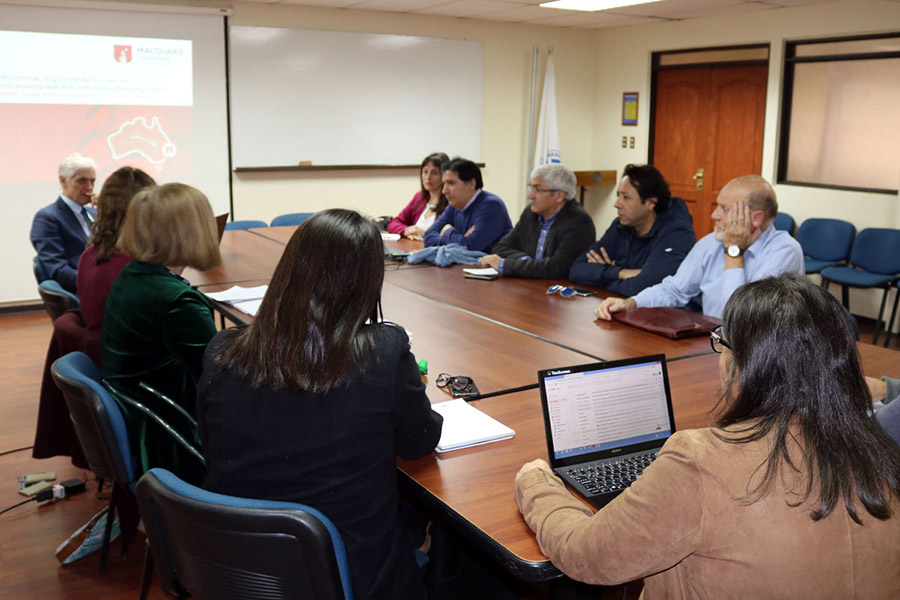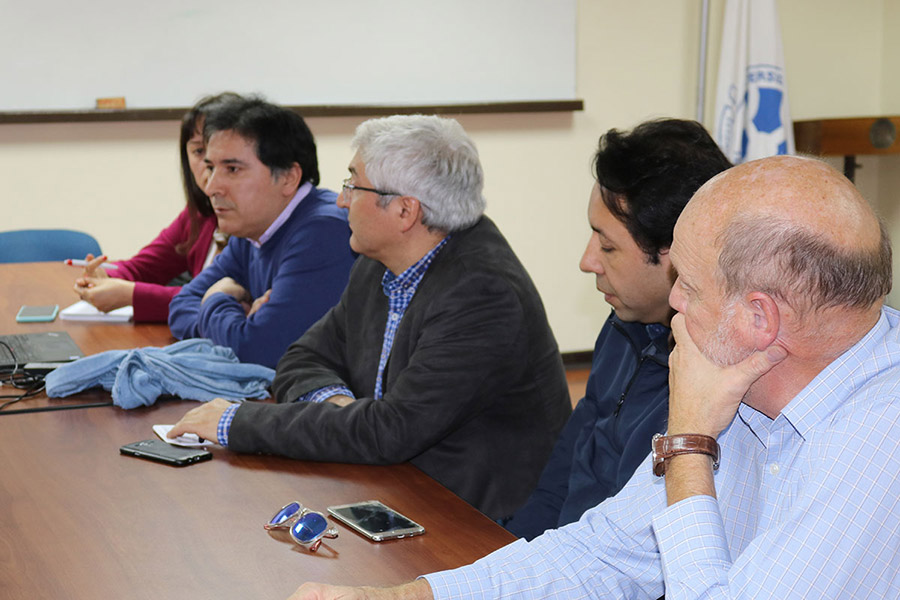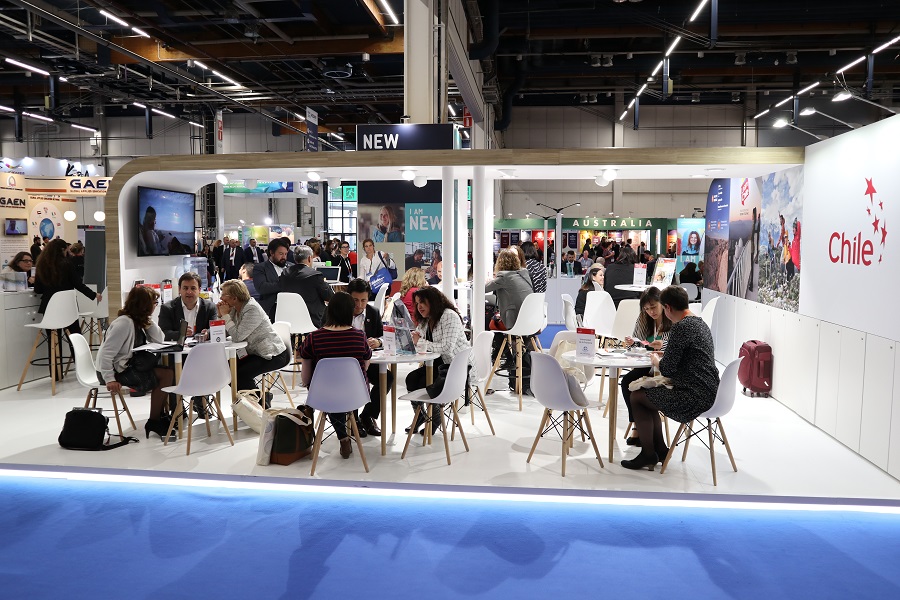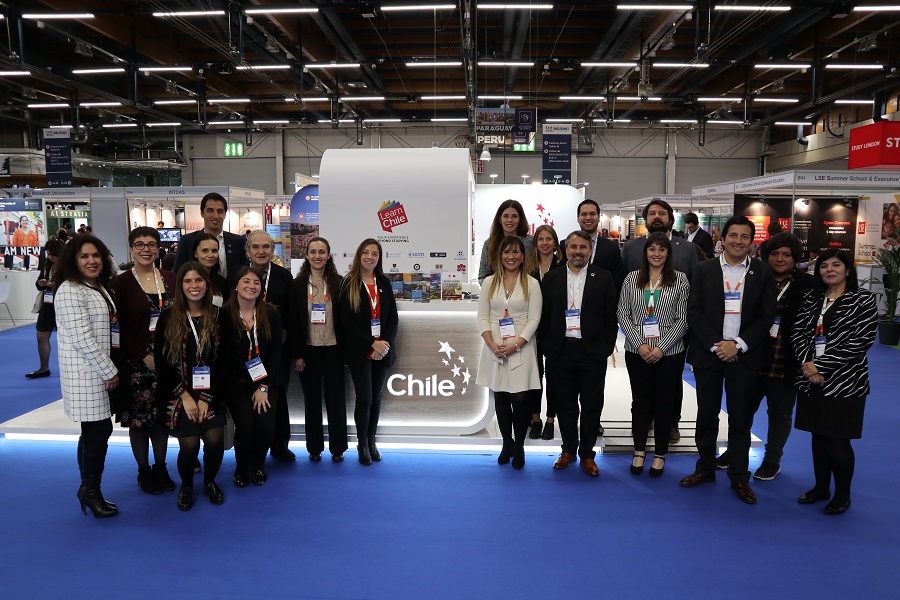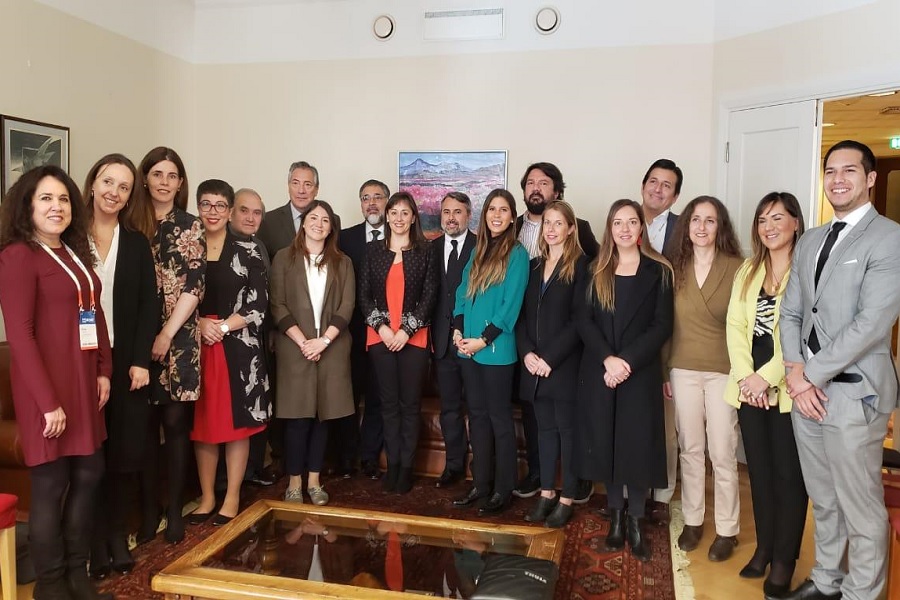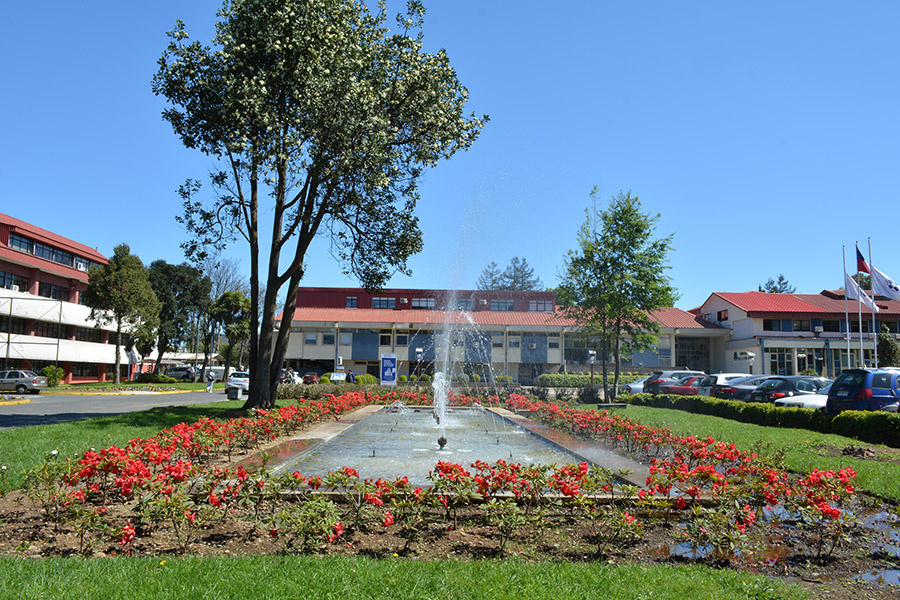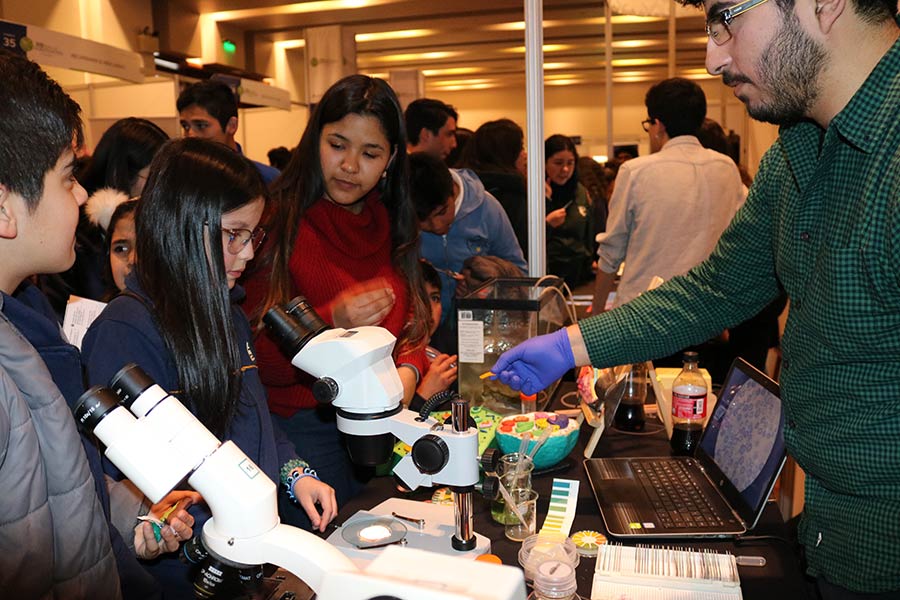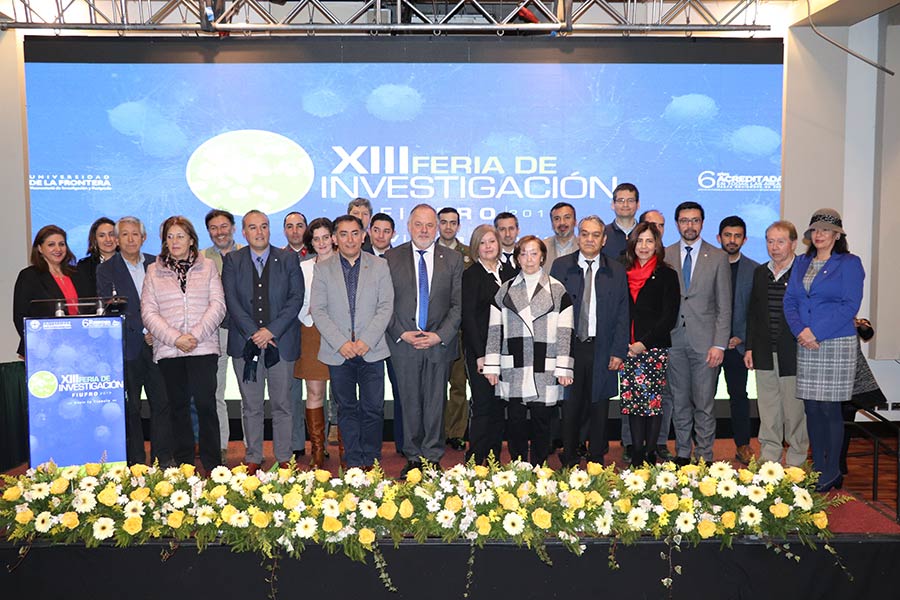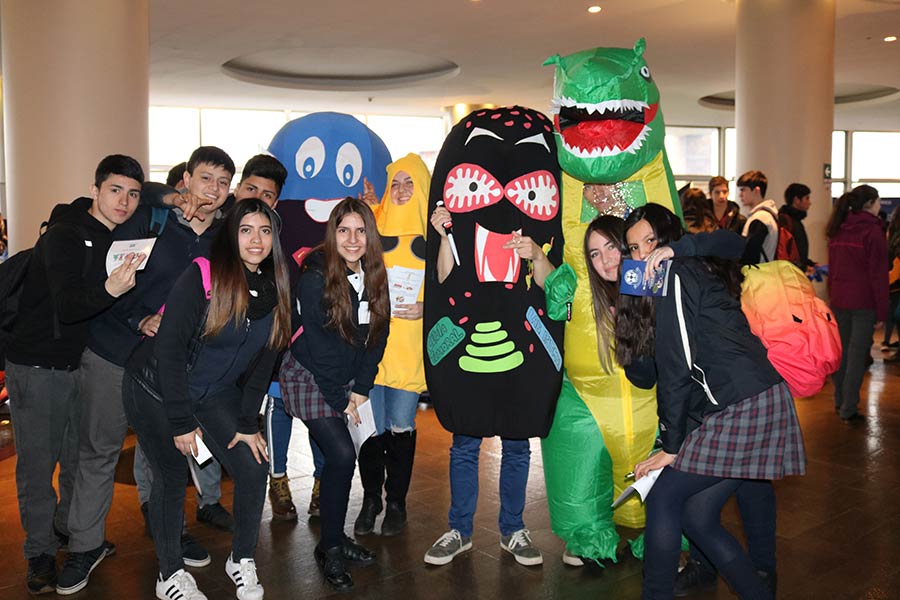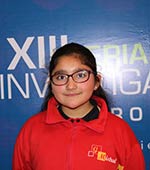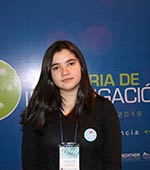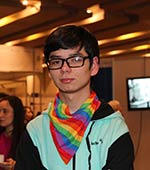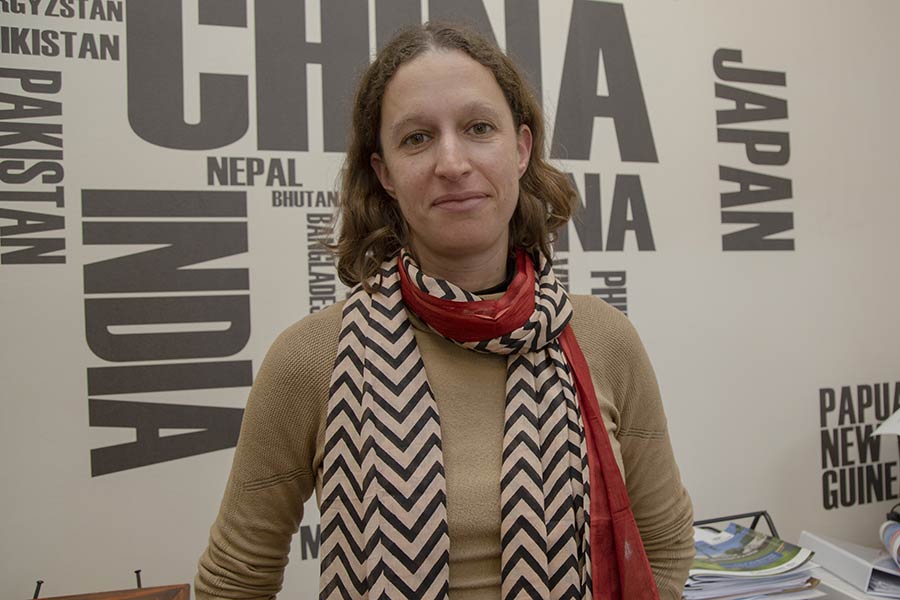|
This alliance will allow to strengthen a productive relationship of great importance with KU Leuven, one of the oldest universities in Europe, and a young institution in Oceania, the Macquarie University in Australia. |
The partnership between the Universidad de La Frontera (UFRO) in Chile and KU Leuven in Belgium is very strong and based on mutual trust and collaboration. They are working together for more than a decade and the link is each time stronger and more productive in terms of research, double graduation and joint publications. Now, the Macquarie University in Australia is also joining this link, converting it into an interesting trilateral partnership with great international impact. An auspicious meeting was recently held within the framework of the conversations about the creation of an international research institute. Therefore, they came together to work on the issue. In representation of the UFRO the academics Jorge Farías, Gabriela Briceño, Jaime Garrido and Francisco Matus, the nucleus directors Marianela Denegri and María de la Luz Mora, and the director of the Institutional Analysis and Development Office, Ricardo Herrera, were present, as well as Dr. Lorena Vieli, the director of the International Affairs Office, and Dr. Pamela Leal, the person in charge of International Contacts. On this occasion, Dr. Sakki Pretorious of Macquarie University in Australia presented the main areas of institutional development and the reasons for his visit: “I met Dr. Adison Altamirano a few years ago and we are very aspirational, very hungry to change things, and very entrepreneurial. The purpose of my visit was to meet more people, so that we can start to build a relationship and that I can start to explain what are the things we are doing and interested in. It was a very interesting brainstorming between the participants.” Dr. Pretorius explained: “Within a year, we will have identified the areas we want to collaborate on, also with KU Leuven in Belgium, which is a very good old university, together with two young universities that are very aspirational. If we put these things together we can start our collaboration as a virtual research institute between the three universities, on specific areas, with specific aims. We can put skills together and complement one another, so that we can exchange students, phd students and academics.” Dr. Koppin of KU Leuven, who plays an important role in this alliance, commented: “This trilateral agreement seeks to strengthen the interest of each of the universities. But it is not that easy, because there are only few initiatives of this kind in the world. However, our idea is to overcome the differences and to come together regarding the common issues.” Three institutions from Australia, Belgium and Chile with three different points of view and three different cultures – it is an interesting challenge that could multiply their productivity. In this context, Dr. Koppin explained that the geographical location of the UFRO is unique, the technology of Macquarie University is the most advanced and the knowledge of KU Leuven is indispensible. Dr. Lorena Vieli, the director of the UFRO International Affairs Office, pointed out: “This link will become an interesting scenario for research, since it creates great opportunities for joint development. We are talking about a possible synergistic research center or institute between universities on three continents.” The director added: “It will encourage the academics, undergraduate and graduate students, and researchers to participate in mobility programs, and also strengthen the fields of research, obtaining even more positive results. We have a lot to offer at UFRO.”
Written by: UFRO Communications Office
|
|
The EAIE is the most important International Higher Education Conference and Exhibition in Europe, organised by the European Association for International Education. This year, it took place in Helsinki, Finland. During three days, the UFRO and other universities from different countries all over the world had the opportunity to show their new ways of academic cooperation, achieving more than 250 meetings. |
This is the sixth time that Chile had a national stand to display its educational offer at this International Higher Education Exhibition, the most popular one in Europe, which took place in Helsinki, Finland. Fourteen institutions for higher education of Learn Chile attended the event in representation of Chile, including the Universidad de La Frontera (UFRO), which managed to sign cooperation agreements with universities in several countries. For the students, safety, beauty and the diversity of landscapes are decisive factors when choosing a destination to study abroad. Europe is the continent where most exchange students come from, with about 40% of the total number of foreign students (almost 4,000 per year). Most of them come from Spain (12.4%), followed by France (11.4%) and Germany (6.5%). They mostly participate in exchange programs, special courses or spanish courses. Dr. Pamela Leal, who is in charge of Dissemination and International Contacts, pointed out that the EAIE is an important platform for visibility. “During this version of the event, we had more than twenty meetings with institutions from Europe, Asia and Latin America. Some examples are the WSB University in Poznan (Poland), Haute Ecole Léonard De Vinci (France), Global Education Park (Finland), BSDU Jaipur (India), Kanagawa University (Japan), Ghent University (Belgium), Banat University of Agricultural Sciences and Veterinary Medicine (Romania), and so on,” she commented. These are only some of the partners interested in doing some kind of cooperation with the UFRO. In this context, Dr. Leal added: “The issues addressed were student and academic mobility through the Erasmus+ program, and joint research projects in the fields of agriculture, business, engineering and social sciences. In the field of postgraduate studies, the main interest focused on developing co-tutorship agreements and postdoctoral exchange. International relations are based on trust, mutual cooperative work, bidirectionality and sustainable cooperation. Therefore, it is extremely important to attend this kind of events.” INTERNATIONAL RELATIONS During the EAIE, representatives of Spanish and French educational institutions scheduled the most meetings with representatives of the Chilean peers, although relatively new markets, such as Finland, Turkey and India, also were highly interested. Roberto Ubilla Quevedo, the Ambassador of Chile in Finland and Estonia, also received the representatives of the Chilean universities that attended the event at the premises of the Embassy of Chile in Finland. The objective of this meeting was to develop networking activities in order to establish ties of exchange and cooperation. FINLAND AS A REFERENCE The Finnish education system is known to be the best in the western world. During EAIE, the Conference on Higher Education in Finland took place, where the main characteristics of the Finnish education system were presented. One of them is that most undergraduate programs are taught in English, as well as all postgraduate programs. Anita Lehikoinen of the Finnish Ministry of Education commented that there is a program of the Finnish government which has the objective that, until 2030, 50% of the young adults in Finland achieve a university degree. Another result she presented was that more than 50% of the investment in research and development (R&D) in this nordic country comes from the industry (most funds come from the Nokia Foundation). Since the EAIE was held in Finland, great student exchange opportunities opened up for the Chilean delegation. An instance that began to take shape during a reception by Mr. Roberto Ubilla, the Ambassador of Chile in Finland, at his residence, which was also attended by authorities from the Finnish Ministry of Education and representatives of universities from all over Europe in order to welcome the delegation of Learn Chile. “During the meetings we saw how Chile consolidates itself as the starting point for European universities to work in the Southern Cone. European students enrich the academic mobility programs developed in Chile and offer the possibility for Chilean students and academics to establish academic, social and research networks that can be developed in the medium and long term, with all the national benefits that come with it," Marcos Avilez, the director of Learn Chile, pointed out. PARTICIPATING CHILEAN UNIVERSITIES 1. Duoc UC
Written by: UFRO Communications Office
|
|
What stands out among the approved projects in the contest of 2019 is the diversity of research fields: history; psychology; engineering; geography and urbanism; legal and political sciences; linguistics, literature and philology; medicine G2-G3; mathematics; biology; health and animal production. |
The Universidad de La Frontera (UFRO) positions itself as a leader in scientific productivity after getting 14 Fondecyt Initiation Projects approved in 2019. This makes it the regional state university with most projects approved in this competition, being in eighth place at the national level. For the university authorities it is a reason to feel proud and motivated to move forward. “This result reflects a research strategy that we have been implementing in recent years, the outcome of the efforts of many people, what allows us to keep increasing our productivity. This makes us visible in a very strong way and challenges us to keep working on new fields of knowledge, to strengthen our collaboration networks and to strengthen our internationalization processes,” Dr. Eduardo Hebel Weiss, the Rector of the UFRO, said. The UFRO presented 34 proposals in the last Fondecyt contest and got 14 of them approved, two more than in 2018. That is more than one billion Chilean pesos in resources for these projects. Dr. Renato Hunter Alarcón is the Vice-rector for Research and Graduate Studies at the UFRO and explained that the university is a great center for research and development in the Araucanía Region that helps to promote a different image of the region. “Today, we are presenting excellent indicators in science and technology and we are somehow changing the image of a region that is depressed or has a low educational and socioeconomic index. As a university, we are contributing and turning the region into a place of research, innovation and development,” Dr. Hunter explained. He added that, although the University's scientific and technological initiatives also focus on problems in other regions of the country, the knowledge that is created here remains in the region and is expected to be implemented in the future. He also said that it is important to consider the research fields that contribute to the issues being discussed at the moment, such as water resources, deforestation, climate change, and the industry 4.0. ENCOURAGING YOUNG RESEARCHERS The Director of Research of the University, Dr. César Arriagada Escamilla, appreciated the contribution of young researchers in the increase of the institutional indicators. In this context, he pointed out that the efforts to encourage the initiation of research have led to positive results. “Some of the researchers who got their projects approved in this competition have already participated in the institutional post-doctoral contest, what shows us that we are on the right track. The important thing is that they develop this potential during their entire career in science, because this is the first step, this is where they enter the world of first level research,” Dr. Arriagada explained. The university authorities congratulated the researchers who got their projects approved: Carolina Navarrete, María Francisca Román, Leonardo Sierra, Andrés Jaramillo, Mónica Pavez, Paula Meli, Jorge González, Mario Fabregat, Alejandra Calabi, Fernando Dias, Daniela Gómez, Rommy Díaz, Paola Comparin, and María Morales. The research fields of the different projects are: history; psychology; engineering; geography and urbanism; legal and political sciences; linguistics, literature and philology; medicine G2-G3; mathematics; biology; health and animal production. THE PROJECTS Project Code: 11190860 Project Code: 11190428 Project Code: 11190300 Project Code: 11190621 Project Code: 11190653 Project Code: 11190362 Project Code: 11190844 Project Code: 11190358 Project Code: 11191021 Project Code: 11190543 Project Code: 11190799 Project Code: 11191199 Project Code: 11190961 Project Code: 11190501
Written by: Karimme Riadi Millas |
|
Dr. Lorena Vieli del Rio, an agricultural engineer and an academic of the Faculty of Agricultural and Forestry Science, is the new director of the International Affairs Office at the Universidad de La Frontera. Her work will be inspired by the collaborative work of the university community, being facilitators of international relations in academic and student related areas. |
Within the scenario of visibility of the International Affairs Office of the Universidad de La Frontera (UFRO), Dr. Lorena Vieli accepted the challenge of becoming its new director. She has full trust in this consolidated unit and that the new projects that might come up will be handled well by the well-trained team, with the support of the university government and the work that the academics and researchers have been doing over the years, consolidating the process of institutional internationalization. Dr. Lorena Vieli del Rio is an agricultural engineer and an academic of the Faculty of Agricultural and Forestry Science. She studied at the University Pontificia Universidad Católica in Chile, and then finished her Ph.D. at UC Santa Barbara in the USA. There, she started to build important international links and to join different research networks. Her fields of study were ecosystem services, agroecology and crop pollination. In this context she added: “It is favorable to approach those who have led outstanding experiences in this field with good results for our institution. It is in my interest that the International Affairs Office is present in the creation of new synergies, through programs, projects, research and cooperation on a different scale as well.” For Dr. Vieli, this was a positive invitation: “I am a researcher and I understand the position of our researchers regarding the institutional work and the link with our peers from foreign universities. That makes it easier for us to act as facilitators regarding the interaction of the academics. Besides, we will not only be able to strengthen these links and partnerships, but also to nurture them over time.” For the new director of the International Affairs Office, the premise is clear and the work has to contribute to “being a facilitator of the international relations of our academics and students.” In this context, she recognizes that, thanks to the work of those who have been dealing with the issue of internationalization, substantial progress has been achieved. “The university has grown to such an extent that today, we have many defined processes, both for the allocation of resources and for the support we can offer. Competitive funds have been established for the participation at international events (academics, graduate students and professionals) and for internships abroad (researchers). These actions are very important in the fields of management and planning.” Regarding student mobility, the new director said that the UFRO has a lot to offer. It is attractive for foreign students, due to the geographic location and the context of cultural richness. Therefore, she explained: “One of the new challenges is to observe ourselves better and to highlight our culture and local ties in a way that strengthens our international links, but from our own identity, which is what differentiates us from other universities.”
Written by: UFRO Communications Office
|





